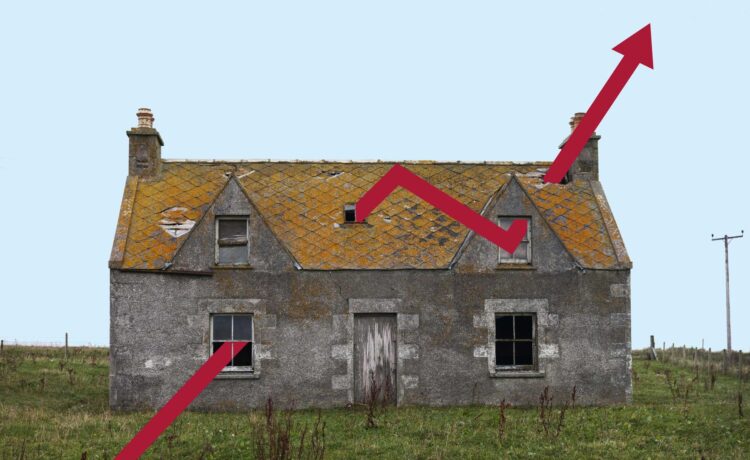Watching the snow pile up outside my home in Manchester, my mind drifts back to the warm, sunny day when I started my quest to buy a house in Sardinia for one euro. The sun is shining there again today. The temperature’s in double figures and the tourist board claims it NEVER drops below zero.
Of course, you don’t change your whole life just to get a chance of better weather. And in these days of climate change it is hard to make plans around it. Still, given the choice – and the chance to buy a new home for peanuts – I’ll go for warm and sunny, thanks very much.
And Sardinia, Sardinia – it’s not just the heat, the beaches, the clear turquoise seas. The island’s in a Blue Zone. It’s one of the world’s happy regions where pleasant weather, local organic food and wine, low pollution levels and absence of stress seem to guarantee that you will live to a ripe old age. This time last year, there were 534 people across Sardinia who were 100 or older, or 33.6 for every 100,000 inhabitants.
Not for the first time, the old cynic in me observes snidely that this is surely too good to be true. If Sardinia is so great, where are all the young people then? Why are the local authorities practically giving away old houses for a euro apiece? And on top of that, why are they offering grants of €15,000 to help newcomers with the costs of renovating them?
It turns out that it is true – at least on paper. The strings attached mean that it is difficult to turn this truth into reality. Fifteen thousand euros is on offer for each house purchased, BUT it may not amount to more than 50% of the cost of repairing and refurbishing the property. Do-it-yourself enthusiasts need not apply – local builders and materials must be used. Traditional houses in Sardinian villages may also be governed by what we would call listed building status. So there are restrictions on how the place is allowed to look when it is finished. All this tots up to a lot more than one euro, before you even start to pay for lawyers and conveyancing.
Then there are the visa limitations – as a Brit, I would be allowed to spend no more than 90 days in any six-month period in Sardinia. So if I got the grant for half the cost of doing up my house, I could spend only half the year in it. After a year and a half, I would need to apply for residency. And if the building works were not finished in a further half a year – well, then it would be time to pay it all back. Or lose the house. Or both.
It all seems deliberately designed by the local authorities to make sure that property speculators, absentee landlords and get-rich-quick Airbnb schemers will steer well clear. Sardinia’s regional president, Christian Solinas, is on record as saying that the aim is to revive depopulated old villages and bring in new businesses by offering incentives to foreigners. He was a property developer himself, before he went into politics.
And… wait, what’s this in the local newspaper…? The sale of one of his desirable residences – a beach house near the capital, Cagliari – is being investigated. It’s alleged the deal involved an inflated price and – incredibly – an honorary degree in medicine from the University of Tirana, Albania!
Bribery allegations, building regulations, bureaucratic restrictions – this is not going to be as easy as it sounds. I definitely need to do a lot more homework and adopt the Ancient Roman approach to house-buying.
Caveat Emptor!














